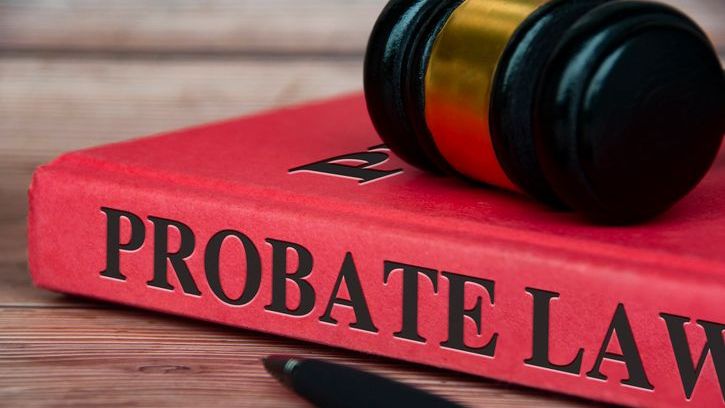A probate lawyer is a legal professional who specializes in guiding individuals through the probate process, which involves the administration and settlement of a deceased person’s estate. They assist in validating wills with the purpose of distributing assets accurately and handling any disputes that may arise among beneficiaries. Probate lawyers also provide crucial support in managing debts and taxes associated with the estate, making the often complex and emotionally charged process more manageable.
Need help planning your estate? Connect with a financial advisor who offers estate planning services.
Understanding Probate
Probate is the legal process that takes place after someone’s death. Probate involves validating the deceased’s will, as well as settling debts and taxes before distributing the remaining assets to beneficiaries. Probate may also include the appointment of an executor or administrator to manage the estate if none was named in the will.
The executor or administrator, often named in the will, is responsible for gathering the deceased’s assets, such as bank accounts, real estate and personal property. They must also notify creditors and pay off any outstanding debts and taxes. Probate can vary in complexity based on the estate size and state laws.
In cases where there is no will, state laws determine how the estate is divided, typically among surviving relatives. The probate court oversees this process so that it is conducted fairly and in accordance with the law. While some assets, like jointly-owned property or accounts with designated beneficiaries, may bypass probate, some estates may be required to go through this legal procedure.
What Is a Probate Lawyer?

A probate lawyer specializes in guiding executors and beneficiaries through the legal process of settling an estate after someone has passed away. These attorneys are well-versed in the complexities of probate law, ensuring that all legal documents are correctly filed and that the estate complies with relevant state laws.
In addition to handling the probate process, probate lawyers assist with other estate-related tasks. This can include locating and securing assets, obtaining property appraisals and managing life insurance proceeds. They also address any disputes that might arise among heirs or between heirs and the estate. By handling these intricate details, probate lawyers help to streamline what can often be a complex and stressful process for the deceased’s family.
Executor vs. Probate Lawyer
A common question is whether a probate lawyer can also serve as the executor or administrator of the estate. Typically, the probate lawyer represents the executor or administrator but does not take on these roles themselves. The executor or administrator is usually a family member or trusted individual appointed in the will or by the court if there is no will. Their job is to oversee the estate’s administration, while the probate lawyer provides the necessary legal expertise and support to fulfill these duties effectively.
When to Hire a Probate Lawyer
In many cases, probate can be managed without a lawyer if the estate is straightforward, involving few assets and no disputes among heirs.
Hiring a probate lawyer can be particularly beneficial in certain situations, though. For example, if there are disagreements among beneficiaries, having legal representation can help mediate conflicts and distribute assets fairly. Additionally, if the estate includes business interests, real estate or foreign assets, a lawyer’s expertise can be invaluable in navigating the complexities of probate law.
Legal assistance is also advisable when dealing with unclear or contested wills. If the will’s validity is questioned or if it’s been poorly drafted, a probate lawyer can help clarify the document so that the deceased’s wishes are honored. Furthermore, when dealing with significant debts or potential claims against the estate, a lawyer can provide essential guidance on how to handle creditors and protect the estate’s assets.
Imagine a family where the matriarch passes away, leaving behind a sizable estate. Her will, drafted years ago, contains ambiguities regarding the distribution of her assets among her three children and several grandchildren. Her estate includes properties in multiple states, each with its own probate laws, and a considerable amount of stocks and bonds. The family quickly realizes that without clear guidance, the probate process could be lengthy and contentious. As a result, they choose to hire an attorney to help them navigate the process.
When selecting a probate lawyer, it’s important to hire someone with experience in estate law and a thorough understanding of local probate regulations.
How Much Do Probate Lawyers Cost?

Probate lawyers typically charge for their services in one of three ways: hourly fees, flat fees or a percentage of the estate’s value.
- Hourly fees: Many probate attorneys charge by the hour, with rates varying widely based on the lawyer’s experience, location, and the complexity of the case. According to Martindale-Nolo Research, hourly fees can range from $200 to $500 or more. This method can be beneficial for straightforward cases, as clients only pay for the actual time the lawyer spends on their case.
- Flat fees: Some lawyers prefer to charge a flat fee for probate services, providing a clear and predictable cost upfront. This can be particularly appealing for clients as it eliminates the uncertainty of hourly billing. The specific amount usually depends on the complexity of the estate and the services required.
- Percentage of the estate: In some states, such as California and Florida, probate lawyers may charge a fee that is a percentage of the estate’s value. This method can be advantageous for lawyers when dealing with large estates. According to the California Courts, the percentage charged in the Golden State usually falls between 2% and 5%. While this can simplify the fee structure for clients, it can also become quite costly for larger estates.
Pros and Cons of Hiring a Probate Lawyer
Choosing to hire a probate attorney depends on individual circumstances and the complexity of the estate. Here’s a look at the pros and cons that you may want to consider when hiring a probate lawyer:
Pros
- Expertise: Probate attorneys have specialized knowledge of estate laws that can help ensure legal procedures are followed correctly.
- Efficiency: They can expedite the probate process, reducing the time and effort required.
- Stress reduction: Handling complex legal documents and court proceedings can be overwhelming; a probate attorney eases this burden.
- Conflict resolution: They can mediate disputes among heirs and beneficiaries, preventing potential legal battles.
- Asset protection: This makes sure that assets are properly managed and distributed according to the will or state law.
Cons
- Cost: Hiring a probate attorney can be expensive, with fees potentially reducing the estate’s value.
- Time: While they can expedite the process, the involvement of an attorney can sometimes introduce delays, especially if additional documentation is required.
- Perceived necessity: For smaller, simpler estates, hiring an attorney may be seen as unnecessary if the process is straightforward.
- Limited control: Relying on an attorney means less personal involvement in the estate’s management, which some may find unsatisfactory.
Bottom Line
Hiring a probate lawyer can potentially ease the complexities of estate administration, especially in cases involving substantial assets, potential disputes among heirs, or intricate legal issues. These professionals provide essential guidance in validating wills, managing debts and taxes, and help with asset distribution. While hiring a probate lawyer comes at a cost, they can make this legal process smoother and less stressful for the family.
Estate Planning Tips
- If you’re concerned about the potential costs associated with probate or simply want to keep your estate private, consider establishing a revocable living trust. You can transfer assets into the trust and manage them while you’re alive. When you die, the trust becomes irrevocable, shielding its assets from the probate process.
- A financial advisor with estate planning expertise can help you navigate the complexities of this important planning process. Finding a financial advisor doesn’t have to be hard. SmartAsset’s free tool matches you with up to three vetted financial advisors who serve your area, and you can have a free introductory call with your advisor matches to decide which one you feel is right for you. If you’re ready to find an advisor who can help you achieve your financial goals, get started now.
Photo credit: ©iStock.com/Jerome Maurice, ©iStock.com/ilkercelik, ©iStock.com/kate_sept2004
